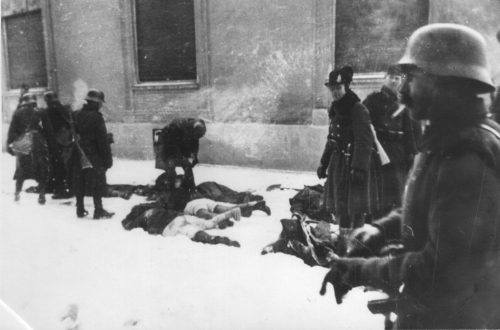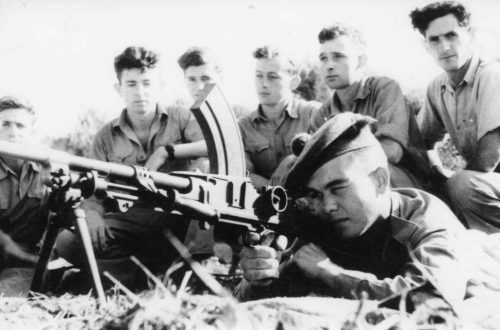I have been reading Francis Wheen’s latest book, Strange Days Indeed: The Golden Age of Paranoia (Fourth Estate, 2009). This book is about the 1970s. Those interested in this period of history should make sure that they purchase a copy. On pages 57-8, I came across a passage that referred to an article that appeared in an old issue of The Spectator. I was so intrigued that I tracked down the source. I copy an extract below:
Could the army take over?
Patrick Cosgrave
The Spectator
December 22, 1973, p. 806
…. I have, like, I suppose, most political journalists, heard perfectly serious Tories suggest that the return of the Labour Party to power in its present state of thralldom to the left and the unions would produce, ultimately, a left-wing dictatorship; and equally serious Labour men suggest the like about the present government. That brilliant historian, Mr Alastair Horne, has drawn disturbing parallels between the Chilean experience [a military coup took place in Chile in September 1973] and the likely development of our own. But we can hardly believe it could happen here.
Well: could it? The answer is, yes, of course. Our admirably professional armed forces could, quite easily, take the country over if they had had a mind to; and if public resistance to the idea of their doing so had been eroded by continual failure on the part of the politicians evidently to succeed in the tackling of the nation’s problems. However, for an army (and an air force and navy) as disciplined as our own to act in such a way would require the development and escalation of the political crisis to a degree and extent that would have seemed impossible a few years ago, but seems altogether too possible now….
[T]he contempt which ordinary people increasingly feel for the capacity of political leaders of both parties has been mirrored by the unwillingness of certain powerful groups, notably the unions, to play according to the rules, hitherto accepted. Of course, it is understandable that union leaders, men of very limited but very real tactical intelligence, having so readily crushed so many governments before, should feel they can do so again, not realising the extent to which the inflation they themselves battle against has so damaged both the currency and the national will that every challenge to government brings the nation closer to anarchy….
I doubt if the present industrial disruption is actually organised by tight little groups of subversives. But I have no doubt that such groups, imbued with a contempt for parliamentary democracy, are coming to the fore in the politics of industry, like foetid flowers blooming in our unhealthy climate. Furthermore, just as happened in Russia before their Revolution, the intelligentsia in this country have for long been both preaching anti-parliamentary forms of political activity and ideas subversive of the broadly accepted moral consensus of the country. It matters not whether you think some of their nostra correct or not: the bulk of the people do not. It does not matter what policies you consider wise, or what philosophies justified – the process has frequently been the prelude to revolution….
But could the forces – or, more important would the forces – do it? Not yet, of course. But of one thing we can be sure: no successful revolution in Britain would be left wing, for the army are the men with the guns. Were, let us say, a future government (perhaps, as in Chile, a future Poujadist-Trotskyist government?) to produce a situation in which industrial militancy and urban guerrilla activity became rampant, it would be impossible to avoid a military move, perhaps initially sanctioned by government, of some proportions. And if this had been preceded by a further decline of the esteem in which democratic forces were held, then it would merely be the prelude to a take-over….
Nothing is, of course, inevitable. But if the process of disillusion, failure and subversion, conscious or unconscious, which I have described goes on it can have only one result. If politicians, with however good intentions, sidetrack the parliamentary process … they cannot complain if men in uniform cease to regard it as sacred.
But of this I am certain: no coup will take place in this country until it is one that would be welcomed or quietly acquiesced in by a majority or a very large minority of the people. But, in my judgement, we have gone measurably down the road to such acceptance in the last decade, and we have travelled very quickly along it in the last year.
With the benefit of hindsight, I can say, with certainty, the following: it never happened.


